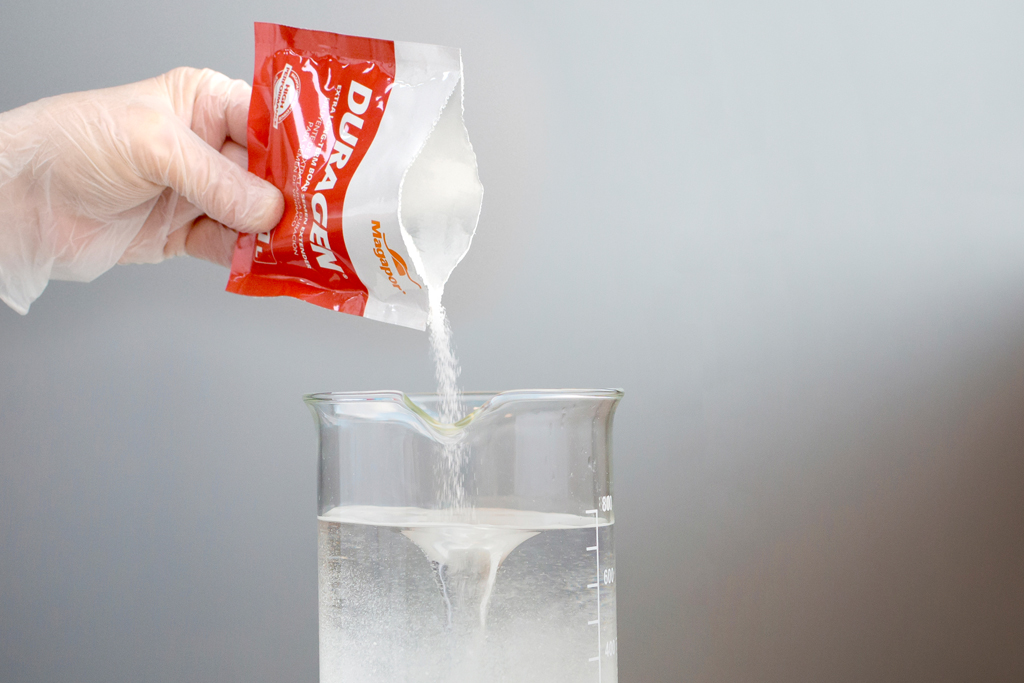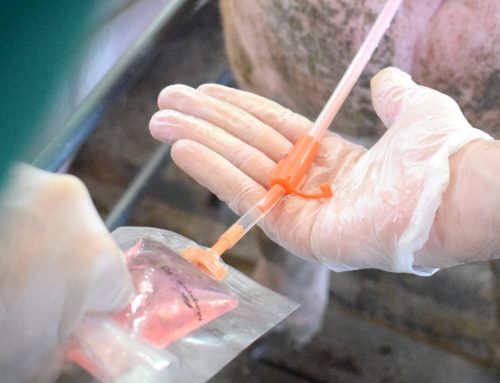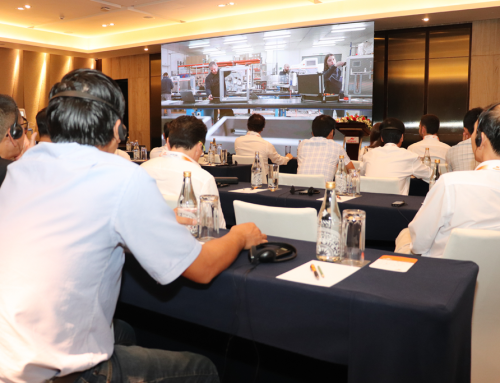Seminal dose preparation involves the use of pure ejaculate to which a extender is added until the desired concentration and volume is achieved. The proportion of extender added varies according to the initial concentration of the ejaculate and the final concentration to be achieved.
Although the dilution rate can vary, it is traditionally recommended that dilutions should not be less than 1/10 or greater than 1/21, the ideal dilution rate being 1/10. Lower rates (1/5 to 1/10) and higher rates (1/21 to 1/30) are considered risky, however, scientific evidence supporting or refuting these ratios is scarce. In the following, we analyze two possible scenarios in the preparation of seminal doses:
- Add a very small amount of extender to the ejaculate to:
- Prepare very concentrated doses.
- Prepare doses from very low concentrated ejaculates.
In these cases, the resulting seminal doses will have a higher proportion of seminal plasma and a lower proportion of extender. This can affect the quality and viability of the sample.
- Adding too much extender to the ejaculate to:
- Prepare poorly concentrated doses.
- Prepare doses from highly concentrated ejaculates.
In these cases, the seminal doses will carry in proportion little seminal plasma and more extender components. This may be beneficial or may alter the nature of the seminal plasma and its efficacy.
The “dilution effect” of semen is not well known and refers to the decrease in sperm concentration when semen is mixed with an excessive volume of extender. This is a particularly relevant phenomenon in assisted reproductive techniques, where the ejaculate is diluted to a large volume to generate numerous doses for artificial insemination.
Long-term extenders can mitigate the “dilution effect”
It is not clear whether the dilution effect is due to a decrease in seminal plasma components, to a lower sperm concentration, or to both factors. The reduction of antioxidants, proteins and other seminal plasma components can compromise sperm functionality and cause loss of motility and premature capacitation and acrosome reaction. In addition, it can destabilize sperm membranes, producing effects similar to cold thermal shock. All of this, in short, can adversely affect fertilization capacity.
On the other hand, a low concentration of sperm in seminal doses hinders the movement of ions and components of the extender and seminal plasma, as the sperm, by swimming, move the medium and help other sperm to move.
Proper choice of extender is critical to help mitigate the dilution effect in more dilute seminal doses.
There are 2 types of extender on the market, the one considered short term or BTS and the high performance extenders. The first ones maintain the properties of the spermatozoa from 24 to a maximum of 72 hours and their capacity for semen preservation is limited, since they cannot fully control stressors such as the male effect, the processing process, the dilution rate, manipulation, conservation, transport, storage and application of doses on the farm.
High-performance extender products such as Vitasem, Duragen, and Spermax are more complex and their innovative formulation includes energy efficient precursors, protective substrates against thermal shock, specific biological salts and buffers, antioxidants, stabilizers and antibiotics, without including components of animal origin. They offer maximum protection and are the efficient solution for critical moments, allowing to maximize the fertilizing capacity of semen doses in artificial insemination.
Due to the qualities of these diluents, at Magapor we carried out a test to determine the minimum and maximum sperm concentration that can be used per dose without affecting the seminal quality in high performance Magapor extender compared to those of the competition. For this purpose, we prepared very concentrated doses, diluting 1/5, and very diluted doses, diluting 1/50, as shown in the following table:

The results obtained in the tests performed conclude that Magapor’s high performance extenders are formulated to minimize the dilution effect and ensure the fertilizing capacity of the spermatozoa in a wide dilution range:
- Viability > 80% for up to 7 days at doses with dilution ratios of 1/50.
- Motility is maintained at doses with dilution ratios 1/5 à extenders contains sufficient nutrients and of the highest quality: no energy depletion.
- Membrane and acrosome remain intact for up to a minimum of 7 days in both highly diluted and highly concentrated samples (sHOST>50% and ORT>70%).
- In addition, Duragen and Spermax offer superior protection against the “dilution effect” compared to competitive extenders, maintaining better motility and acrosome status at the most dilute doses.
To learn more about the advantages of using Magapor’s high performance extenders, as well as the criteria to follow to choose the best extender according to the timing of insemination, please refer to these two blog posts:
BIBLIOGRAPHY
Centurion F, Vazquez JM, Calvete JJ, Roca J, Sanz L, Parrilla I, Garcia EM, Martinez EA. Influence of porcine spermadhesins on the susceptibility of boar spermatozoa to high dilution. Biol Reprod. 2003 Aug;69(2):640-6. doi: 10.1095/biolreprod.103.016527. Epub 2003 Apr 30. PMID: 12724275.
Pursel VG, Johnson LA, Schulman LL. Effect of dilution, seminal plasma and incubation period on cold shock susceptibility of boar spermatozoa. J Anim Sci. 1973 Aug;37(2):528-31. doi: 10.2527/jas1973.372528x. PMID: 4748485.
Ashworth PJ, Harrison RA, Miller NG, Plummer JM Watson PF (1994) Survival of ram spermatozoa at high dilution: protective effect of simple constituents of culture media as compared with seminal plasma. Reproduction, Fertility and Development 6, 173-180.




